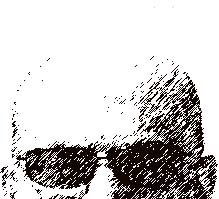"You may call it PTSD, I call it the side effects of living with an addict."
When i showed my boss my PTSD workbook, he told me that it parallels some of the material that he went through as part of a program for adult children of alchoholics. I was expressing frustration with the fact that stbx-Mrs_C has never been prepared to go to counselling and deal with her issues. He said denial and avoidance are key to those kinds of issues. He says that all variety of alcoholic and other behaviours are maladjusted coping mechanisms. He said "If you accept that the person in question is in pain, that they have a medical condition, then it makes more sense. The alcoholism and their other behaviours are reactions to their pain. The avoidance is like a kid that doesn't want the top of an infected scab torn off, and the alcohol is self-medicating their pain. They are trying to deaden or escape their pain."
He also suggested me that I should look at some al-anon material.
That and Ballon Pirate's various references led me to look at some Al-Anon material. One of the key elements that I have extracted from this material is reinforcement of my belief that i have to take care of myself, and that I will not be able to help my kids unless I help myself first. That, in fact, is what my Mom has been harping on since i darkened their doorstep on the night I left stbx-Mrs_C.
I found a number of the ideas the present for coping with alcoholics to be of interest. The following excerpts are from the online article Paths to Recovery (B-24)
Alcoholism is a family disease. This means “. . . the alcoholism of one member affects the whole family, and all become sick. Why does this happen? Unlike diabetes, alcoholism not only exists inside the body of the alcoholic, but is a disease of relationships as well. Many of the symptoms of alcoholism are in the behavior of the alcoholic. The people who are involved with the alcoholic react to his behavior. They try to control it, make up for it, or hide it. They often blame themselves for it and are hurt by it. Eventually they become emotionally disturbed themselves.” (from Alateen – Hope for Children of Alcoholics, page 6).
"In Al-Anon meetings we hear the three Cs describing our powerlessness over alcoholism: we didn’t cause it, can’t cure it, and can’t control it."
"Hard as it is to look at our own part in our problems, acceptance of Step One brings relief from impossible responsibilities. We were trying to fix a disease – and someone else’s disease at that!
To find peace and serenity in our lives, we have to change – a challenging, and perhaps fearful, thought. We may have to re-learn to take care of ourselves. When we are focused on another person’s alcoholism and behavior, many of us develop the habit of putting that person’s needs first. We may suffer from low selfesteem and not believe that we deserve to take time for ourselves."
a list of questions asked by the publication:
- Do I accept that I cannot control another person’s drinking? Another person’s behavior?
- How have I tried to change others in my life? What were the consequences?
- What means have I used to get what I want and need? What might work better to get my needs met?
- How do I feel when the alcoholic refuses to be and do what I want? How do I respond?
- What would happen if I stopped trying to change the alcoholic or anyone else?
- How can I let go of others’ problems instead of trying to solve them?
- In what situations do I feel excessive responsibility for other people?
- In what situations do I feel shame or embarrassment for someone else’s behavior?
- Do I say “yes” when I want to say “no”? What happens to my ability to manage my life when I do this?
- Do I take care of others easily, but find it difficult to care for myself?
- How do I feel when life is going smoothly? Do I continually anticipate problems? Do I feel more alive in the midst of a crisis?
- How well do I take care of myself?
- Am I attracted to alcoholics and other people who seem to need me to fix them? How have I tried to fix them?
- Do I trust my own feelings? Do I know what they are?

3 comments:
Cad- Food for thought here. Thanks for the insights. I just finished a psychology of Development class...boy, was that an eye opener. You know, I came to the conclusion, as if I did not already know; I can't fix it. Now, I am at peace with not trying to. I feel a helliva lot better.
Good post.
My best friend is going through co-dependency and trying to make the world think her family is perfect. I have begged her for years to cut the ties with her husband but she's not strong enough. I need to have her read your blog.
I've begged her to go to Al Anon and even offered to go with her but she never follows through.
I'm proud of you for making the decisions you have. I know that you will inspire others to make the right choices.
In this article the useful thinks been told.like one alcohol user spoiles that whole family.visit us there is lot of interesting topicks are there.
-------------------------
paul oscar
Alcohol abuse affects millions. This site has a lot of useful information.
Alcohol Abuse
Post a Comment